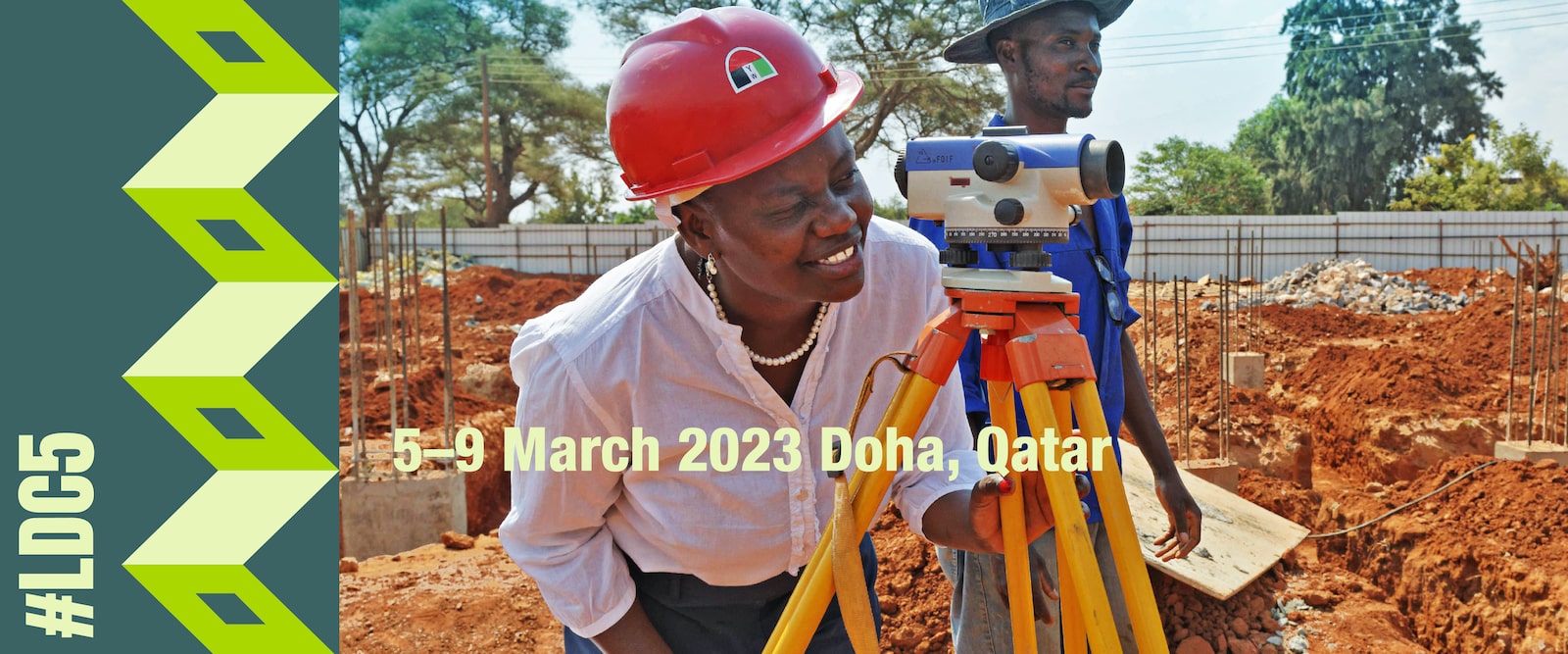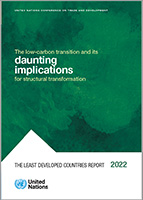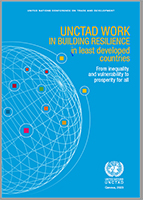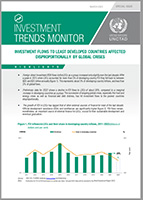Fifth UN Conference on the Least Developed Countries (LDC5)
5–9 March 2023, Doha, Qatar
The 46 least developed countries (LDCs) comprise about 14% of the global population. They are some of the poorest and most vulnerable economies in the world.
They account for only 1.3% of global gross domestic product, receive just 1.4% of total foreign direct investment and trade under 1% of world merchandise exports.
LDCs are the battleground on which the 2030 Agenda for Sustainable Development will be won or lost.
At LDC5, UNCTAD calls for bold action and development cooperation to achieve inclusive growth and sustainable development in LDCs.
UNCTAD calls for:
- Effective debt relief and management in LDCs to avert the growing risks of debt distress, partly caused by the lack of alternative sources of development finance.
- Export diversification in LDCs to shift economic activities, jobs and resources from low-productivity sectors to higher-value-added and higher-productivity sectors.
- Stronger productive capacities in LDCs to improve their capacity to make quality goods and deliver services to enable them to participate more fully in global trade.
- A new strategy to enable LDCs graduate with momentum (stop being LDCs). How LDCs achieve graduation is as important as when they do so.
- Increased investment capacity in LDCs through financial and technical support for investment project preparation and contract negotiation, investment-related dispute resolution, investment promotion facilities and related assistance.
- A just, balanced and sustainable low-carbon transition in LDCs through increased international support that considers the long-term development needs of these countries.
More on the 5th United Nations Conference on the Least Developed Countries
UNCTAD Meetings
Stories
Productive capacities for sustainable development
UNCTAD’s Productive Capacities Index is a practical tool to support developing countries in understanding the status of their productive capacity and how this can be improved.
The tool can help LDCs participate more fully in global trade and production by improving their capacity to make quality goods and deliver services.





